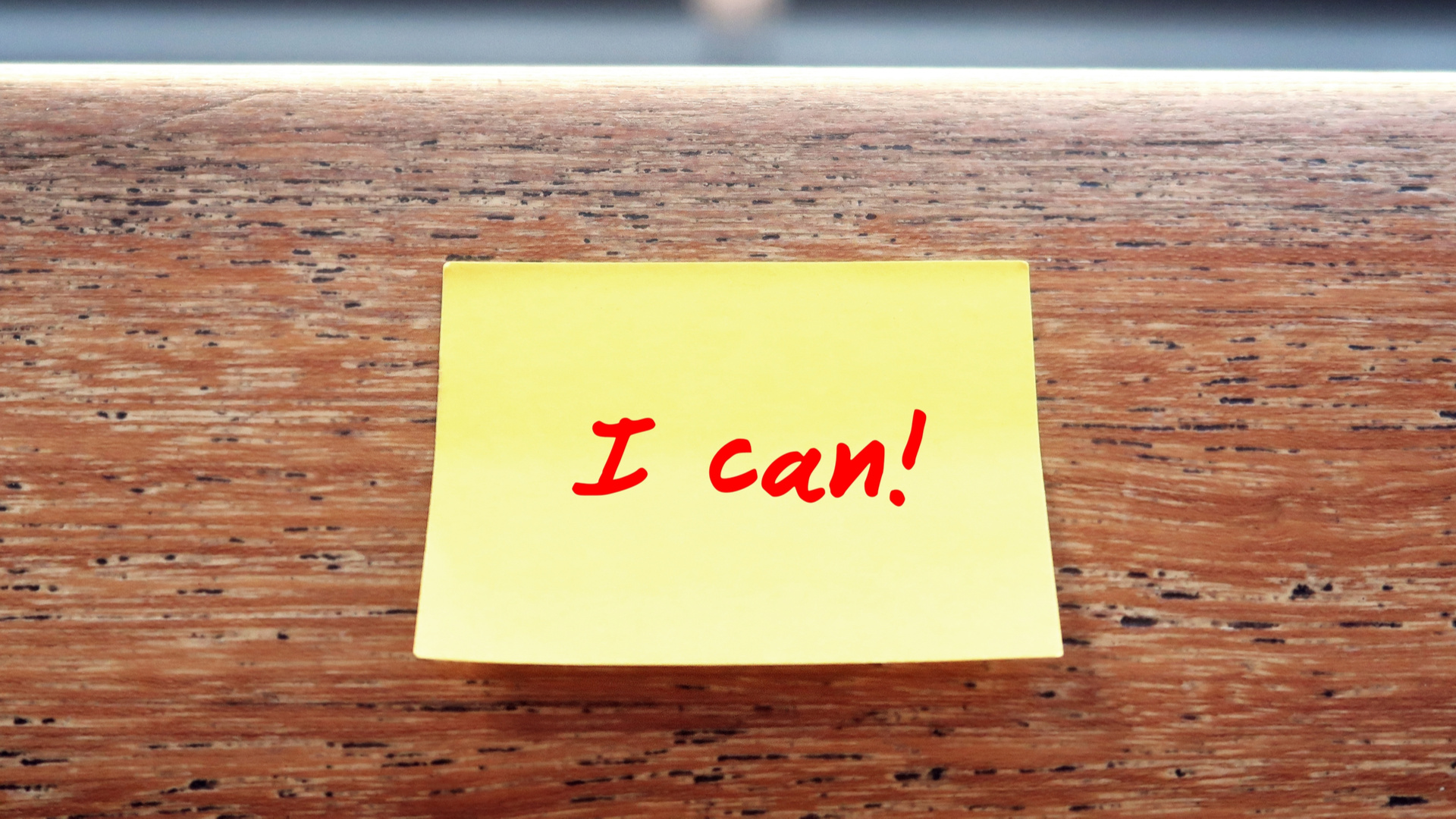Learning to appreciate self love affirmations
I am good enough
The words stare back at me from the sticky note stuck on my computer monitor. They are mocking me rather than motivating me as this latest self-affirming mantra is supposed to do. But then, it doesn’t work if I don’t actually say the mantra over and over again. So, I say it out loud, speaking slowly and deliberately.
“I. AM. GOOD. ENOUGH.”
I roll my eyes – both at the sound of my own voice, and because I feel nothing. Nothing. No sparks. No magic. However, it’s always like this when I start a new mantra. That’s the whole point. If I believed it, then I wouldn’t need to push myself to shift my mindset.
Part of my struggle this time is that this is not the first time I’ve used this mantra, and I’m ashamed to be at this point again. In fact, this was the very first mantra I used in my 20’s when I began a journey that turned into many years of therapy to build my sense of self and self esteem. That was 30 years ago. Why am I back here, requiring a reboot of the most basic of my self love affirmations?
Sometimes we need to be reminded of our self worth
I know the answer before I ask the question. New job, or jobs, really, where my experience and love of cloud computing, IT architecture, or digital transformation don’t really matter anymore. In one role, I am having to dig deep inside to find new levels of empathy, compassion and patience. For the other role, I have to lean heavily on my structure and process skills more than ever before.
I tell myself that I have always taken on new challenges and stretched myself. That’s why I have a reputation for being a fixer and a builder and someone who is willing to take risks and drive change.
However, 13-year-old Margi is never far away from adult Margaret, reminding me that once again I’m the new kid in school and too tall, ugly and smart to ever be popular.
Is that what I want – popularity?
No, it’s not that. What I need is to get grounded again in self. I know who I am and what I stand for. I am good enough, regardless if people like me or not.
Nothing like a self pep talk to start the day.
I leave my desk and walk to the bathroom. Looking in the mirror, I see the same mantra on a sticky note there. This time I say it while looking at myself in the mirror.
“I am good enough.”
Louder.
“I am good enough!”
Okay, better.
The benefit of self love affirmations
Mantras like this have become part of my life. A way for me to move myself from a negative place to a positive one or to move me further or faster down a self-realizing path.
I don’t just recommend self affirming mantras for myself. Nearly every single person I mentor receives this advice as well. Few people who have worked with me have escaped the sticky note exercise.
Sadly, many times the mantra I recommend my mentees start with is this same one I did: I am good enough.
So many smart, talented, successful people suffer from imposter syndrome or are not fully grounded in who they are.
Mantras and other forms of self-affirmation or self-love do not solve it all. I highly recommend combining affirmations with other hard work facilitated by a trained counselor or therapist. If the trauma or negative cycles are deep, this can take years of work (which is also worth it by the way).
However, affirmations do work when you need to focus on a singular shift in how you are thinking about yourself. An affirmation can work because it has the ability to program your mind into believing the stated concept, explains Dr. Ronald Alexander, director of the OpenMind Training Institute.
In fact, research has shown that repeating positive statements about yourself can help you challenge a negative belief or myth about yourself or help you overcome an immediate challenge. For example, research done by scientists in 2016 showed that certain neural pathways are increased when people practice self-affirmation tasks. Other data suggests that daily self affirmations can lower stress, increase performance and provide stronger protection from external negative influence.
When should I use a self-affirming mantra?
I create a new self-affirming mantra every Sunday night or Monday morning. I do this at the same time I create my hot list for the day or the week.
Sometimes, I keep the same mantra for several weeks at a time. Typically, this is when I have a big challenge to overcome or I am really feeling ungrounded.
The times when you might find a self love mantra helpful are when you:
- Need a confidence boost before a big event, presentation or meeting
- Need to control negative feelings or reactions, like frustration or anger
- Don’t feel qualified or competent
- Lack self-confidence
- Are stuck and can’t finish something
- Want to make a concrete change in your life
- Feel impatient with yourself or others
- Want to take on a new challenge or adventure
- Need to overcome a bad habit
However, as I said, I think it’s helpful to always have an affirmation in your head and on your sticky notes! It’s like daily validation or daily prayer. As with any habit, the more you do it, the more it sticks.

6 Tips for creating and using self affirmations
As with any exercise or new habit, be kind to yourself as you create and practice your self love affirmations. Don’t overthink it or try to solve all of your problems at once.
Here are a few tips to remember:
- Say it at least 10 times a day
- Repetition is key here!
- Say them OUT LOUD
- There is something powerful that happens with our brain’s wiring when we both see and hear a statement.
- Keep them simple
- A few words and a simple sentence. Not a paragraph. Why? If you make your affirmation so long or complicated, your brain will not be able to absorb the message.
- One mantra at a time
- Part of keeping it simple is focusing on one affirmation or positive change at a time. Just like you can’t clean multiple rooms of your house at the same time, you can’t try to change too many things at once. As in any great experiment, keep the variables controlled so you can really know what drove the results. In this case, one variable, one change at a time.
- Use first person: “I” not “you”
- Many people when we first discuss creating a mantra, want to use the word “you” instead of “I”. The problem is you are not trying to affirm someone else but rather yourself. Therefore, it has to be in the first person.
- Put them everywhere – on your fridge, your bathroom window, your computer monitor, your bedside table, your car dashboard, or anywhere you often go or walk past.
- For example, one period when I was trying not to drink as much wine, I put my mantra on my wine cabinet. It kept me from pulling a bottle of wine out of the cabinet.
What are some good mantras to use?
To give you some examples or maybe one for you to start with, here are a few other affirmations I have used or coached others to use.
I am successful
I can do this
I am blessed
I am courageous
I am free from alcohol
I am a good mom
I am patient and calm
I am worth it
Anything will work. Write a statement that reflects what you need to tell yourself. Where do you need a boost or a shift?
Don’t judge yourself. Just write one down on a sticky note (or ten sticky notes) and put them around the house.
If your significant other, children, friends or parents wonder what is going on with all the sticky notes, just tell them the truth. I am working on myself, and this is something I need to start believing about myself.
Maybe they will create their own self love affirmation! Just make sure they use a different color sticky note.


